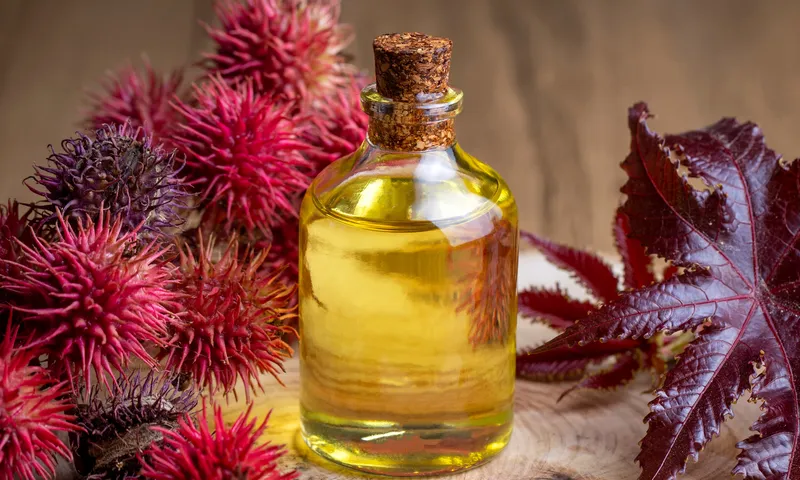Is Castor Oil Good for Psoriasis

Psoriasis is a chronic, non-infectious skin condition that presents with symptoms like red skin, flaking, itching, and cracking. An overactive immune response causes the rapid buildup of skin cells, resulting in thick scaly patches on various parts of the body, most commonly the scalp, elbows, knees, and lower back. Sometimes, even nails and joints are affected. Factors that play a role in psoriasis flare-ups can include stress, infections, cold weather, skin injuries, and certain medications.
When searching for ways to alleviate your skin condition, you may have come across castor oil as a potentially helpful treatment, and you may start wondering: Is castor oil good for psoriasis? Keep reading to learn more about castor oil and whether it can be beneficial to alleviate your psoriasis symptoms, especially on the scalp. The article also outlines additional treatment methods either alongside castor oil or to enhance its effectiveness.
What is Castor Oil?
Castor oil is made from the seeds of a tropical plant called Ricinus communis. This thick and sticky oil is known for being anti-inflammatory, antimicrobial, and moisturizing, since it contains highly concentrated ricinoleic acid. Due to these properties, it’s widely used not only in traditional ayurvedic and folk medicine but also in natural skincare and many cosmetic and medicinal products like lip balms, hair serums, massage oils, and topical salves. It forms a seal over the skin and, therefore, prevents water loss and boosts hydration. Castor oil also promotes tissue repair and wound healing by providing moisture to the skin. Finally, it’s used to treat skin disorders and digestive issues, and can act as a natural laxative.
Is Castor Oil Good for Psoriasis?
While Castor oil can help with psoriasis naturally, it shouldn’t be seen as a primary treatment method and should be combined with other medications like corticosteroids or medicated ointments. For example, it can provide the following benefits:
Soothe inflamed skin
Reduce itchiness
Improve comfort
Moisturize scaly or cracked skin
Reduce plaques
Soften and loosen hardened patches
If you are wondering whether castor oil is good for psoriasis of the scalp specifically, it's most effective when massaged into the scalp before applying shampoo. This breaks up scales and improves symptoms related to tight and dry skin.
Other Treatment Methods
As mentioned, castor oil should typically be used in combination with other effective medications like medicated shampoos, corticosteroids, vitamin D creams, moisturizing oils, and ointments. These and other medications can help address inflammation, loosen scales, soften plaques, and slow skin cell growth. If your psoriasis is more severe, different methods, including light therapy (phototherapy) or oral medications like Otezla and Soriatane, may be necessary. Even though it's difficult, it’s essential that you avoid scratching since this can cause your skin to become increasingly irritated or even infected.
In addition to medications, lifestyle and dietary changes can be highly beneficial when trying to improve the symptoms of psoriasis and reduce flare-ups. Following an anti-inflammatory diet and eating foods rich in omega-3s, such as salmon, flaxseeds, and walnuts, is often recommended. This also applies to avoiding processed foods, alcohol, sugar, and potentially dairy and gluten if consuming them worsens your skin condition.
IMPORTANT NOTE: The above information is intended to increase awareness of health information and does not suggest treatment or diagnosis. This information is not a substitute for individual medical attention and should not be construed to indicate that use of the drug is safe, appropriate, or effective for you. See your health care professional for medical advice and treatment.


